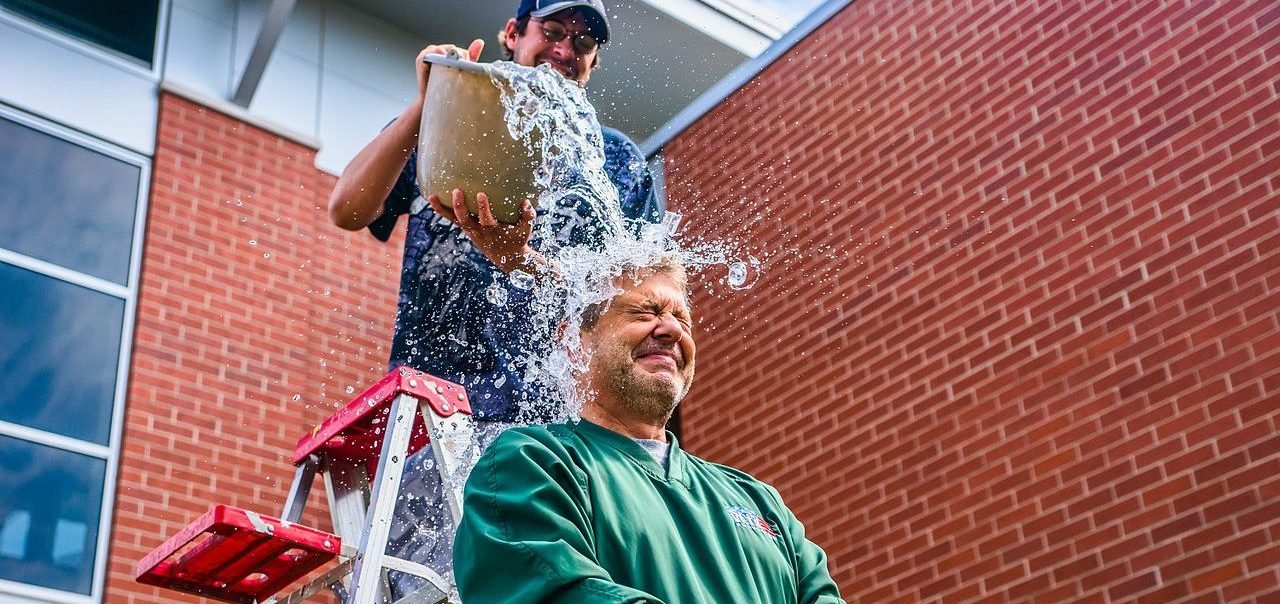Does the ALS breakthrough justify slacktivism?
A research project just discovered a new gene, NEK1, which has been confirmed as one of the most common contributors to the development of Amytrophic Lateral Sclerosis (ALS).
ALS is a neurological disease that attacks the nerve cells responsible for controlling everyday muscle movement. Also known as Lou Gehrig’s disease, ALS is one of a group of motor neurone diseases which cause the gradual degeneration and death of motor neurones. It can be inherited genetically or occur in isolation but there is, as of yet, no cure.
The condition gained extensive media coverage following the ALS Association’s viral Ice Bucket Challenge, which hit social media in 2014. The challenge asked participants to either contribute to research into ALS, or to film and share their suffering when a bucket of ice water was dumped on their heads.
the Challenge raised in excess of $100m in a 30-day period
Not only did it dominate our newsfeeds, but also the Challenge raised in excess of $100m in a 30-day period, according to reports by the Guardian. Sums of money raised were donated by the ALS association to a number of research projects, one of which made the latest discovery.
Project MinE received a $1m contribution from the ALS association in the wake of the Ice Bucket Challenge. The expansion of their research operations that this funded led to Monday’s discovery, published first in the Nature Genetics journal.
The newfound NEK1 gene is reportedly associated with 3% of cases, and is crucially present in both genetically inherited and isolated cases of the condition. Researchers have claimed the discovery gives them a “new target” for drug development, hoping to have their first medication on the market over the next two or three years. “Every gene sequence adds to a better understanding of ALS”, according to the Association.
Many celebrity participants did not so much as mention the disease nor the need to raise money in doing their challenges
During its run, however, the Challenge was far from hailed as an epitome of citizen science. Relegated to little more than a narcissistic social media exercise by Slate magazine, the Challenge came under fire for allowing the need for awareness of a fatal condition to be eclipsed by a participant’s “attractiveness in a wet T shirt”.
Many celebrity participants did not so much as mention the disease nor the need to raise money in doing their challenges, television anchor Matt Lauer and golfer Chris Kennedy among them. This led TIME magazine writer Jacob Davidson to state that, for many, “the chance to jump on the latest trend was an end in itself.”
A recent Guardian take on the news slates such views as cynical dismissals of a successful campaign, claiming “the proof of the pudding was in the eating.”
don’t expect us to lower our standards for the next tide of #activism
Yet, challenge rules set by the ALS association themselves requested that people either donate money or face the ice bucket as a forfeit. Though the original premise was soon forgotten, with people both donating and taking part in the challenge, encouraging people to take a forfeit as an alternative to donating to the fight against ALS remains a problematic precedent. Is research success sufficient to justify the most dubious of foundations?
The campaign raised an enormous amount of money and facilitated research which brings us that step closer to a cure for ALS; the end goal was achieved and the means to it thereby justified. Perhaps the Guardian was right, and critics should be eating their words in light of what has been proven successful citizen activism.
But, as one critic of the Challenge said: “In an age where hashtag activism and information-free awareness campaigns are becoming more and more common, we should be very conscious of how to make viral trends as useful as possible.”
Yes, the Challenge turned out to be successful, but its issues remain relevant: don’t expect us to lower our standards for the next tide of #activism.

Comments